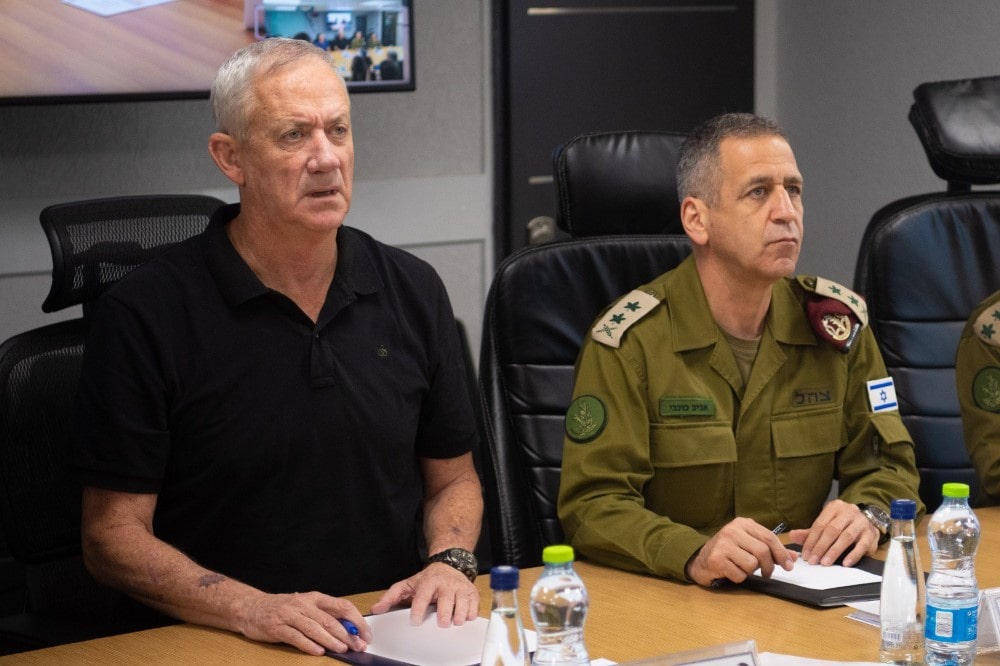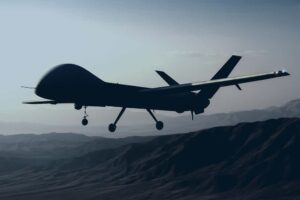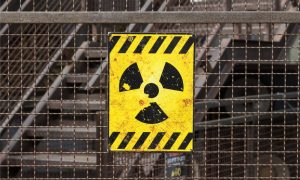
Israeli Defense Minister Benny Gantz has been making some unusual statements in recent weeks. While this may be partly related to the upcoming election, it appears that something deeper is brewing under the surface.
Israel faces major security challenges “just around the corner,” Gantz warned in a briefing at INSS, the country’s top national security think tank. These challenges will have to be dealt with “right after the election,” he said without elaborating.
The defense minister did say that Israel is heading to a critical strategic juncture as the Iranians move closer to the status of a nuclear threshold state. This follows reports that the Air Force is making major progress in preparing to strike in Iran.
Later, Gantz also warned that Israel faces the gravest security challenges since the Yom Kippur War. In the Israeli psyche, the 1973 Egyptian-Syrian invasion was the last time the country faced an existential threat.
While this is partly a campaign move to highlight his security credentials and draw voters, Israeli leaders don’t tend to mention the war casually. Notably, the remarks coincide with major geopolitical and military developments that threaten to redraw the regional map of interests and shake up the balance of power.
In Ukraine, Iran and Russia are forging a military partnership that could have far-reaching implications. The Iranians are using the Ukrainian battlefield to test and improve their weapons, while gaining some leverage over Moscow.
It remains unknown what the Russians plan to give Iran in exchange for its drones and missiles. However, Tehran could ask for favors that will make Israel uncomfortable. Moscow can deliver goods ranging from satellite images to diplomatic or military pressure.
Eyes on Iran and Syria
In parallel, Iran continues to accelerate its nuclear work and is well-positioned to break out toward atomic weapons. An Iranian decision to enrich uranium to 90% will push Israel very close to the red line for a strike.
Jerusalem may first try to convince its Western allies to exert heavy diplomatic and military pressure on Tehran. But with time running out and in the absence of foreign resolve, Israeli leaders may order the Air Force to take off and head east.
Meanwhile, the Syrian front is also heating up. After a month-long break, Israel reportedly bombed targets in the Damascus area twice within the last three days. A rare daylight strike today suggests an urgent operational need based on pinpoint intelligence, journalist Or Heller estimated.
Unconfirmed Arab reports said that Israel’s previous attack targeted sensitive Iranian weapons meant for Hezbollah. Tehran was intensifying arms shipments to bolster its proxy ahead of a possible war, Walla News reported earlier, citing intel sources.
While Israel and Lebanon just finalized a maritime border deal that may reduce tensions, Hezbollah’s next moves remain unpredictable.
As tensions build up behind the scenes, Israelis will vote on November 1 in the hopes that a new coalition emerges soon. In Israel’s divided political system, the formation of a national unity government may also hint that big decisions lie ahead. One way or another, 2023 will likely not be a quiet year.


